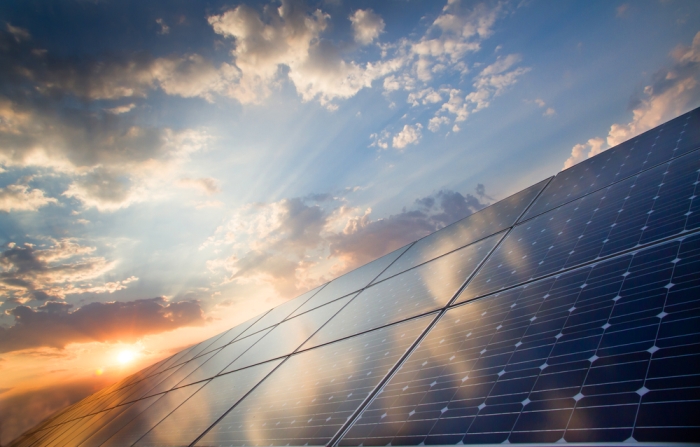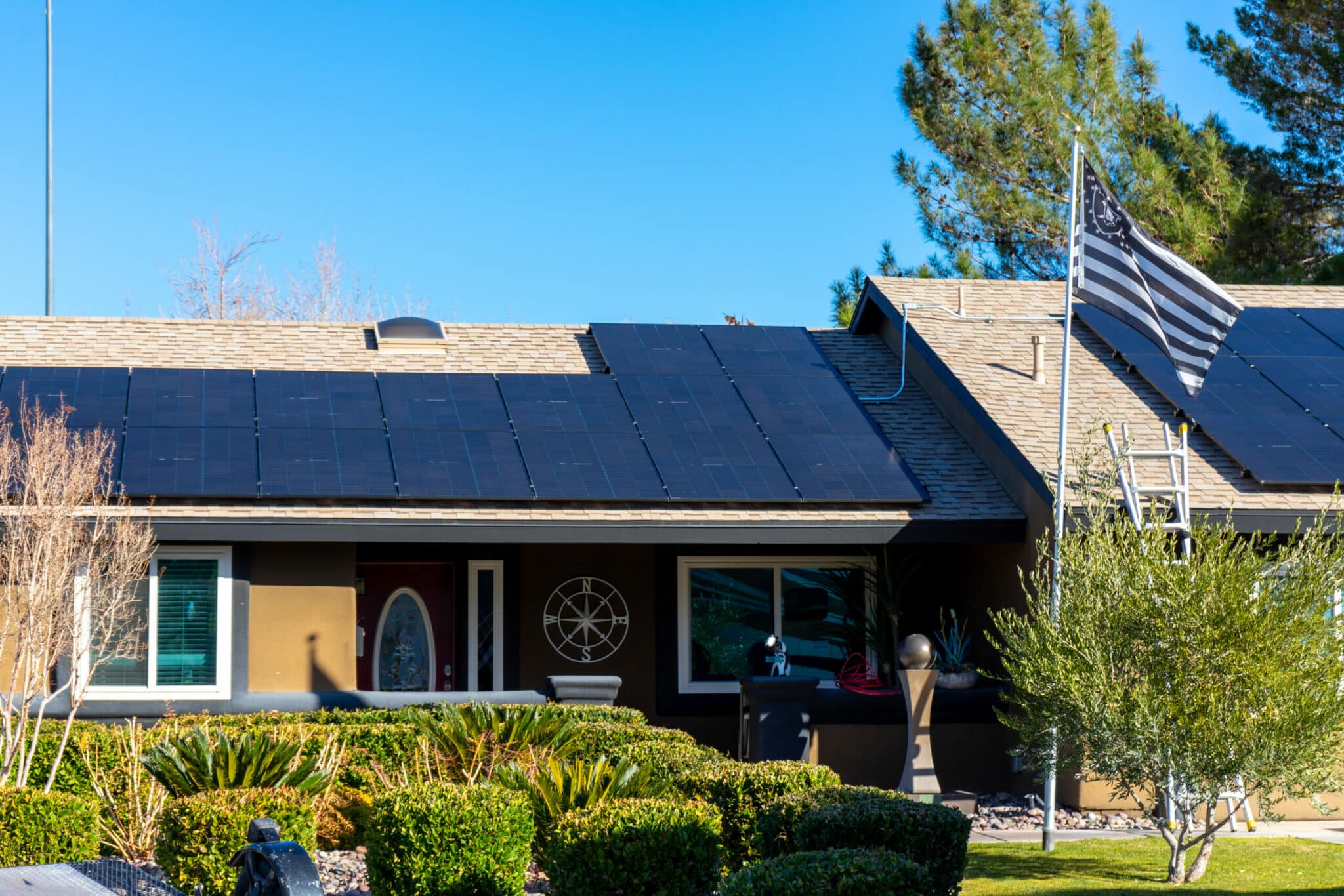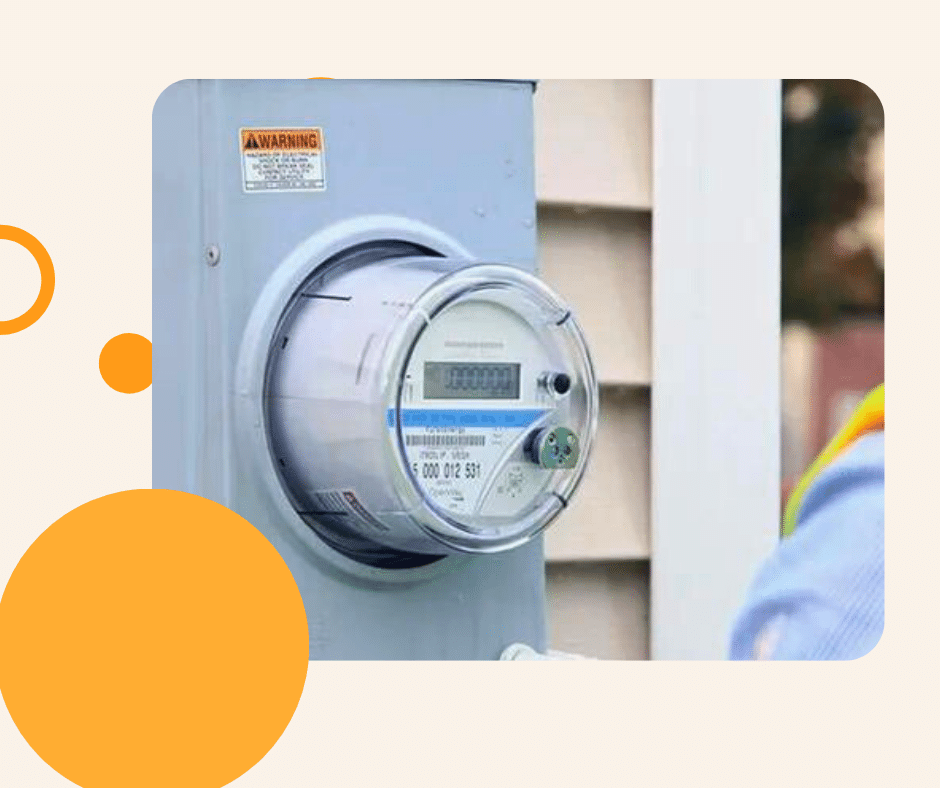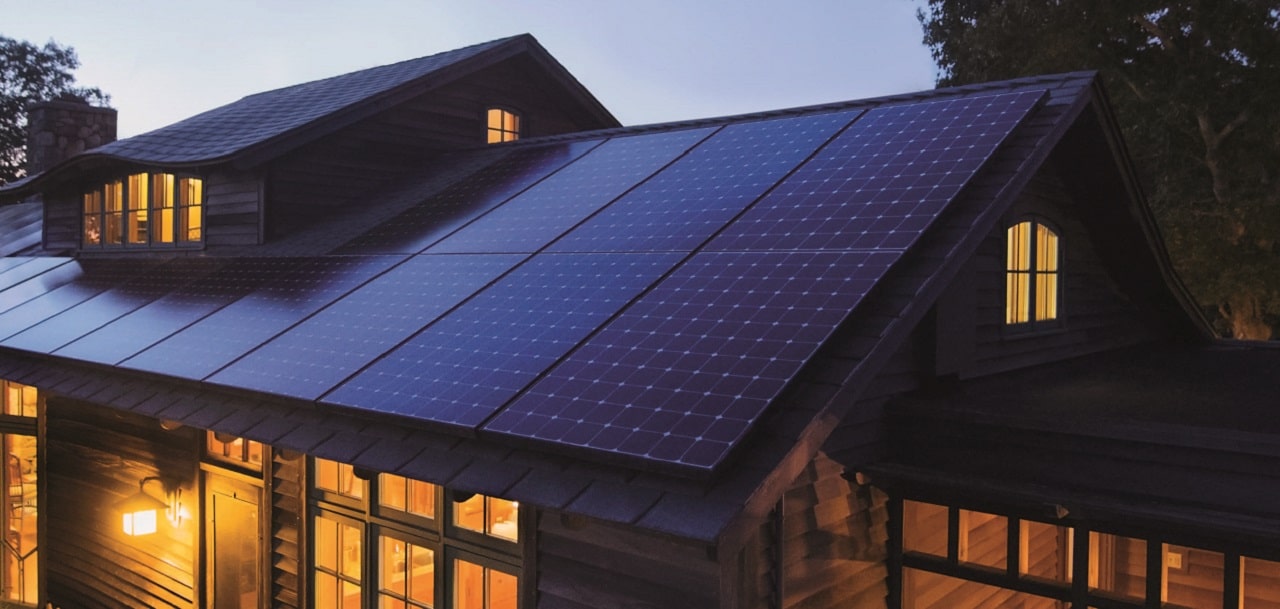When you choose to install a solar power system on your roof (or another part of your home or property), you get plenty of benefits.
As long as those panels are installed and functioning properly, you can generate your own power from a renewable energy source. That means a lower utility bill. With a solar battery or another storage system in place, you can use the generated energy later on as well. And, in many areas, you have the opportunity to give excess power back to your local utility company and then access an equivalent amount later on under a net metering policy.
That all adds up to more freedom and a lower monthly cost for an incredibly common and important resource.
However, there are plenty of questions to answer about the effectiveness of solar installations. Before you make a commitment to a solar energy system, it’s important to understand how they work.
Some of the most common questions we encounter relate to solar panel efficiency and overall function during cloudy days and other times when the sun is obscured or not at all visible. Let’s answer these questions and give you some more information to use as you make your decision about a solar system.
Do Solar Panels Still Work On Cloudy Days?
We won’t make you wait for an answer: Yes, solar panels will continue to work even on a cloudy day. However, they won’t work as well as they do during ideal, clear conditions.
How does a solar power system continue to produce energy even when so many of the sun’s rays are blocked by clouds?
The photovoltaic effect, the key process in solar panels that leads to electricity generation, still occurs during cloudy weather or other less-than-ideal conditions. The Solar Energy Industries Association explains that solar panels continue to produce electricity even when the sunlight that reaches them reflects off a nearby surface or is partially blocked by clouds.
Of course, reduced exposure to sunlight on a cloudy or rainy day will likely lead to your system producing a lower overall output. You may need to tap into your solar battery or rely on your net metering agreement. That’s still a great position to be in, since you’re using your own assets and avoiding your provider’s potentially high rates.
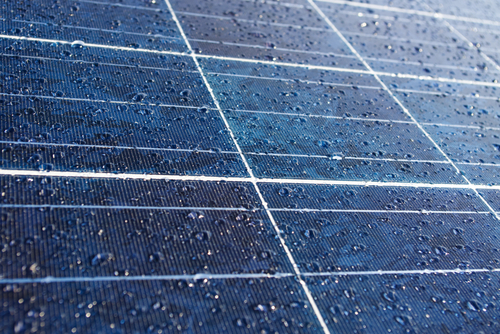
What About Rain and Cold? Do Solar Panels Work on Cloudy, Rainy, and Cold Days?
While clouds don’t do your solar panels any favors, they don’t fully stop energy generation either. And on a cloudy, rainy, and cold day the biggest issue your solar system will face is those clouds. Believe it or not, you don’t need to worry about cold or rain in relation to a solar power system.
Cold temperatures are ideal for solar panels. The US Department of Energy (DoE) explains high heat interferes with the photovoltaic effect. That reduces the overall efficiency of your system. Your system can produce more electricity during a cold and sunny day than is possible during a clear summer day.
While the clouds that come with rain can cause a drop in efficiency, that’s where the negative effects end. Rain simply won’t damage a properly installed and maintained solar power system.
In fact, rain can take care of some maintenance work on its own by cleaning dirt and grime that blocks the sun’s rays from reaching your panels.
Do Solar Panels Work in Snowy Conditions?
A dusting or light accumulation of snow won’t affect solar panels. While snow clouds will partially obscure the sun, you can still count on your panels to generate some electricity. Snow can also help clean your panels, similar to rain.
The major area of concern when it comes to winter weather and solar panels is heavy accumulations of snow. Heavy snow can block light from reaching your panels, a separate DoE article points out. And a major snowfall could put enough weight on your panels that the frame cracks or is otherwise damaged.
However, common installation angles for panels and their smooth, dark, and reflective surface help the snow to slide off.
Do Solar Panels Work at Night?
No, solar panels don’t work at night. The total absence of sunlight prevents the panels from generating electricity. This is a rare instance where conditions mean panels won’t produce any energy, as opposed to only lowering their output.
A Solar Energy System Partner You Can Count On
Solar energy systems are surprisingly resilient! Are you interested in adding one to your home? Start saving money on your electricity bill. Go solar with Sun Source Energy today.

